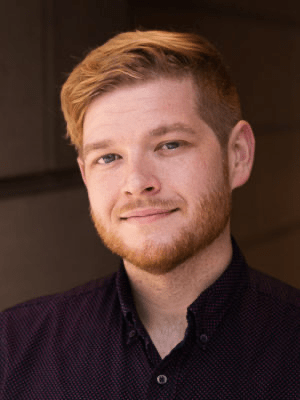For so many of us worry is a way of life. We worry about money. We worry about what people think. We worry about our health. We even worry about our past. And so often these worries attack us without warning. How often have you been going about your day, feeling fine, but suddenly find yourself obsessing over something completely random…like the wording of an email you wrote two hours ago?
- “Why didn’t he respond yet?
- Did I say something stupid?
- Did I make a mistake?
- Did I offend him?
- What if I get fired?”
Your heart races. You feel that pit in the center of your chest. Then you spend a half hour reading and re-reading your message.
But even when everything turns out fine, It’s still unfair, because you just lived half a day with this terror gnawing at the back of your mind.
But the strange truth is you’re built for this fear. Your worry is a survival instinct honed over millions of years.
You’re made to be afraid.
10,000 years ago that fear was vitally important. Back then, a threat meant life or death. It was evolutionarily adaptive if every time you heard the grasses rustling you assumed it was a lion.
You’d better be prepared because it only had to be a lion once for you to get eaten.
Those people who were prepared for the lion, those who assumed the worst, they lived. And now their fear lives on in you.
But this process that was so helpful to our ancestors; looking for threats, assuming danger, preparing for the worst at all times…it drags you down.
The threats we face are no longer life or death.
There are no lions waiting to pounce in our email. In our world this instinct distracts us from what’s important by focusing our attention on the unlikely negative. It paralyzes us from taking action because we severely overestimate the chance that bad things will happen.
Your fear no longer serves you.
But there is hope.
Your instinct isn’t all powerful.
You can talk back to your fear.
There are lots of ways to do this. And sometimes it takes a while to figure out what’s most effective. But right now, I’ll tell you the three questions I’ve found most powerful in helping people talk back to their fear.
When you find yourself with that pit in your chest, your thoughts racing, your heart pounding…
Stop. Be gentle, ask yourself,
“What is it you’re afraid of right now?”
Then ask yourself this,
“What is the most likely to occur?”
Don’t lie. Don’t try to be positive. Just answer honestly. Because the truth is always less scary than what we are afraid of.
“What is most likely to occur?“
Hold onto that in the face of your fear. Hand it back to your fear when it comes up again. The truth is the most powerful weapon we have.
But if the fear persists. Ask this,
“What is the worst that could happen? Will I be ok?”
Again, answer honestly. If you do, if you really dig down for what is true, I imagine you’ll find that whatever you fear, the absolute worst, the thing unlikely to occur, it is survivable.
You have felt this way before. You have survived before.
You are a survivor.
And whatever the thing you fear, it is smaller than what you can do in the face of its challenge.
Recognize your instinct to fear. Remember your fear no longer serves you. Remind yourself of what is likely to occur. Remind yourself that you can survive the worst.
Arm yourself with the truth. There are no lions here.
If this video helped you in some way and you want more help talking back to your fear, I look forward to talking with you.
